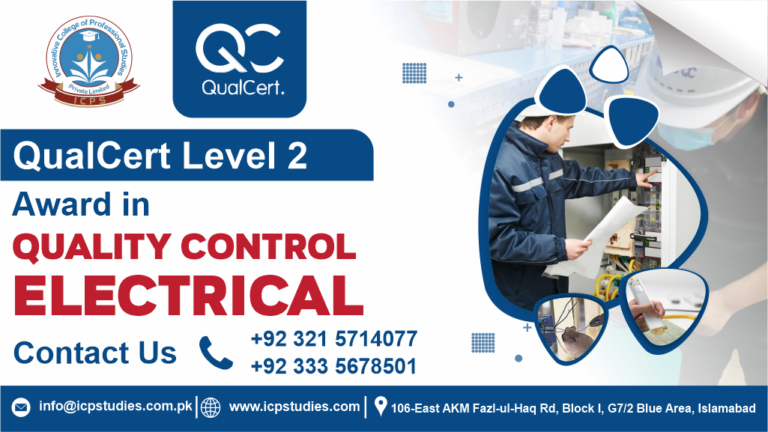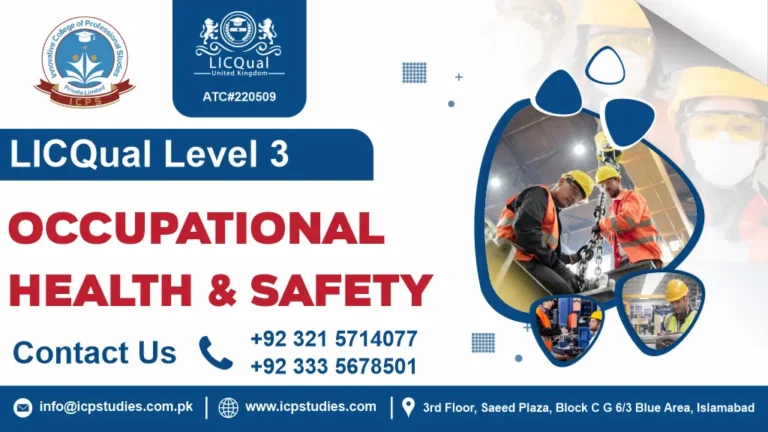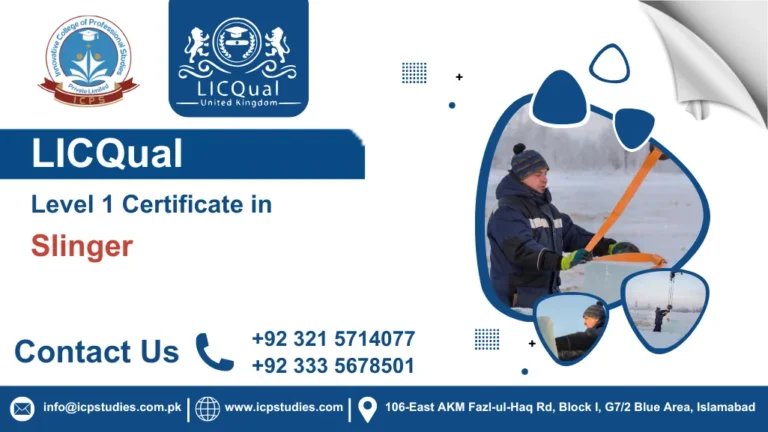The LICQual Level 3 Diploma in Mechanical Quality Control and Quality Assurance (QC/QA) is a specialized qualification designed to provide professionals with the necessary skills and knowledge to manage and implement quality control and assurance processes in mechanical engineering projects. This course focuses on the key aspects of ensuring that mechanical systems, components, and assemblies meet stringent quality standards, regulatory requirements, and customer specifications. Whether you’re working in manufacturing, construction, or mechanical systems maintenance, this diploma will equip you with the tools to ensure the highest quality standards in all mechanical processes.
The LICQual Level 3 Diploma in Mechanical QC/QA is designed to help you master the principles of quality control and assurance in mechanical engineering. It will teach you how to interpret engineering drawings, apply standards and codes, and ensure compliance at all stages of a mechanical project. You’ll gain hands-on experience with quality management systems, inspection methods, and risk mitigation strategies that are essential for ensuring the quality and reliability of mechanical systems.
In summary, the LICQual Level 3 Diploma in Mechanical Quality Control and Quality Assurance (QC/QA) is a valuable qualification for anyone looking to develop their expertise in quality management within the mechanical engineering sector. Whether you’re starting out in the field or are already an experienced professional, this course will provide you with the tools and knowledge to manage quality systems, ensuring that mechanical projects meet the highest standards of safety, efficiency, and performance.
All About LICQual level 3 Diploma in Mechanical Quality Control and Quality Assurance QC QA
Course Overview
The LICQual Level 3 Diploma in Mechanical Quality Control and Quality Assurance (QC/QA) is a specialized qualification designed for individuals who want to gain in-depth knowledge and skills in managing and ensuring the quality of mechanical systems and components. This comprehensive course focuses on the principles, techniques, and practices of quality control (QC) and quality assurance (QA) within the mechanical engineering sector.
As industries continue to prioritize efficiency, safety, and compliance, the demand for skilled professionals who can ensure the highest standards of quality in mechanical projects is rapidly increasing. This course equips learners with the essential tools to implement robust quality control measures, conduct inspections, and apply industry standards to maintain the integrity of mechanical systems.
Throughout the course, you will gain a strong foundation in QC/QA practices, from understanding the regulations and standards that govern mechanical engineering to mastering techniques for testing, inspection, and non-conformance management. This qualification will enhance your ability to prevent defects, mitigate risks, and ensure the smooth operation of mechanical systems across various sectors, including manufacturing, construction, and maintenance.
The LICQual Level 3 Diploma is designed for both industry newcomers and experienced professionals who wish to deepen their expertise and advance their careers in the field of mechanical quality management. By the end of the course, you will have a comprehensive understanding of how to ensure mechanical systems meet the required safety, performance, and quality standards—making you an invaluable asset to any engineering or construction team.
Study Units
The diploma comprises six units, each worth 10 credits, ensuring a well-rounded education in mechanical quality control and assurance:
- Unit 1: Fundamentals of Mechanical Quality Control
- Unit 2: Quality Assurance Systems and Standards
- Unit 3: Inspection Techniques and Tools
- Unit 4: Process Control and Optimization
- Unit 5: Non-Destructive Testing (NDT) Methods
- Unit 6: Documentation and Reporting for Quality Control
To enroll in the LICQual Level 3 Diploma in Mechanical Quality Control and Quality Assurance (QC/QA), candidates should meet the following entry requirements:
- Educational Qualifications:
- A minimum of GCSEs or equivalent, ideally in Mathematics, English, and Science or a related subject.
- Alternatively, a Level 2 qualification in mechanical engineering, manufacturing, or a similar technical field would be beneficial but not mandatory.
- Industry Experience:
- While prior experience in the mechanical engineering sector is not a strict requirement, previous work experience in mechanical systems, manufacturing, or quality control is advantageous.
- Individuals with a background in related technical fields may find this course more accessible and beneficial.
- Basic Literacy and Numeracy:
- Basic literacy and numeracy skills are essential for managing technical documentation, interpreting engineering drawings, and completing course assessments.
- English Language Proficiency:
- Proficiency in English is required, as the course materials and assessments are conducted in English. Candidates whose first language is not English may need to provide proof of English language skills, such as an IELTS score or equivalent.
- Motivation and Interest:
- A genuine interest in quality control, quality assurance, and mechanical systems is highly recommended to ensure that you can fully engage with the course content and succeed in your learning journey.
The LICQual Level 3 Diploma in Mechanical QC/QA is open to both individuals with existing experience in the field and those looking to specialize in quality management within mechanical engineering. If you meet the above criteria and have a passion for improving quality standards in mechanical projects, this course will provide you with the expertise to advance your career in this dynamic field.
The LICQual Level 3 Diploma in Mechanical Quality Control and Quality Assurance (QC/QA) is ideal for a wide range of professionals looking to develop or enhance their expertise in quality management within the mechanical engineering sector. This course is suitable for:
- Mechanical Engineers and Technicians:
- Engineers and technicians who want to specialize in quality control and assurance to improve their project outcomes, ensuring mechanical systems and components meet industry standards.
- Quality Control Inspectors:
- Professionals working in quality control roles within mechanical manufacturing, construction, or maintenance sectors, seeking to expand their skills and knowledge in mechanical quality assurance processes.
- Project Managers and Supervisors:
- Individuals responsible for managing mechanical projects who want to understand quality management techniques, improve project delivery, and ensure compliance with regulatory and quality standards.
- Manufacturing and Production Managers:
- Those in charge of manufacturing or production lines in industries such as automotive, aerospace, and machinery who wish to enhance the quality of mechanical products and components.
- Maintenance and Operations Professionals:
- Professionals working in the maintenance or operation of mechanical systems who want to deepen their understanding of quality assurance methods and improve the longevity and reliability of the systems they manage.
- Health and Safety Officers:
- Those focused on safety and compliance in mechanical environments who wish to understand the importance of quality assurance in maintaining safe working conditions and meeting regulatory requirements.
- Students and Recent Graduates:
- Individuals with a background in mechanical engineering or related fields who are looking to advance their careers by gaining specialized knowledge in quality control and assurance in the mechanical sector.
- Industry Professionals Seeking Career Advancement:
- Anyone seeking to enhance their career prospects in mechanical engineering and quality management by gaining a respected and globally recognized qualification in mechanical QC/QA.
This diploma is designed to benefit anyone involved in or aspiring to work in mechanical quality control, whether you’re starting your career or looking to move into more senior positions with a focus on quality assurance. By completing this course, you will gain a competitive edge in the industry, enabling you to take on more responsibilities and contribute to higher-quality project outcomes in mechanical engineering.
Learning Outcomes
By the end of this diploma, learners will be able to:
Unit 1: Fundamentals of Mechanical Quality Control
- Understand the foundational principles and concepts of mechanical quality control (QC).
- Explain the significance of QC in mechanical manufacturing and maintenance processes.
- Identify common mechanical defects and assess their impact on product performance.
- Distinguish between preventive, corrective, and predictive approaches to quality control.
Unit 2: Quality Assurance Systems and Standards
- Understand the purpose and components of a quality assurance (QA) system in mechanical processes.
- Identify key international standards for quality assurance, such as ISO 9001 and AS9100.
- Explain the role of QA in ensuring compliance and maintaining consistency in mechanical systems.
- Develop a basic QA plan for a mechanical project or product.
Unit 3: Inspection Techniques and Tools
- Recognize the importance of inspections in ensuring mechanical product quality.
- Identify and utilize common mechanical inspection tools (e.g., micrometers, calipers, gauges).
- Apply inspection techniques to measure tolerances and identify deviations in mechanical components.
- Demonstrate the ability to interpret inspection data and report findings effectively.
Unit 4: Process Control and Optimization
- Understand the role of process control in maintaining mechanical quality standards.
- Analyze the factors influencing mechanical process performance and output.
- Implement statistical process control (SPC) techniques to monitor and improve processes.
- Optimize mechanical processes to reduce waste and enhance product quality.
Unit 5: Non-Destructive Testing (NDT) Methods
- Understand the principles and applications of non-destructive testing (NDT) in mechanical QC.
- Identify and differentiate between various NDT methods (e.g., ultrasonic testing, radiographic testing, magnetic particle testing).
- Apply appropriate NDT techniques to inspect mechanical components for defects.
- Evaluate the effectiveness of NDT in ensuring the structural integrity and performance of mechanical systems.
Unit 6: Documentation and Reporting for Quality Control
- Recognize the importance of accurate documentation in mechanical quality control.
- Develop and maintain comprehensive quality control records and reports.
- Apply best practices for writing clear, concise, and actionable QC reports.
- Use documentation to support continuous improvement initiatives in mechanical QC processes.
FAQs about LICQual level 3 Diploma in Mechanical Quality Control and Quality Assurance QC QA







